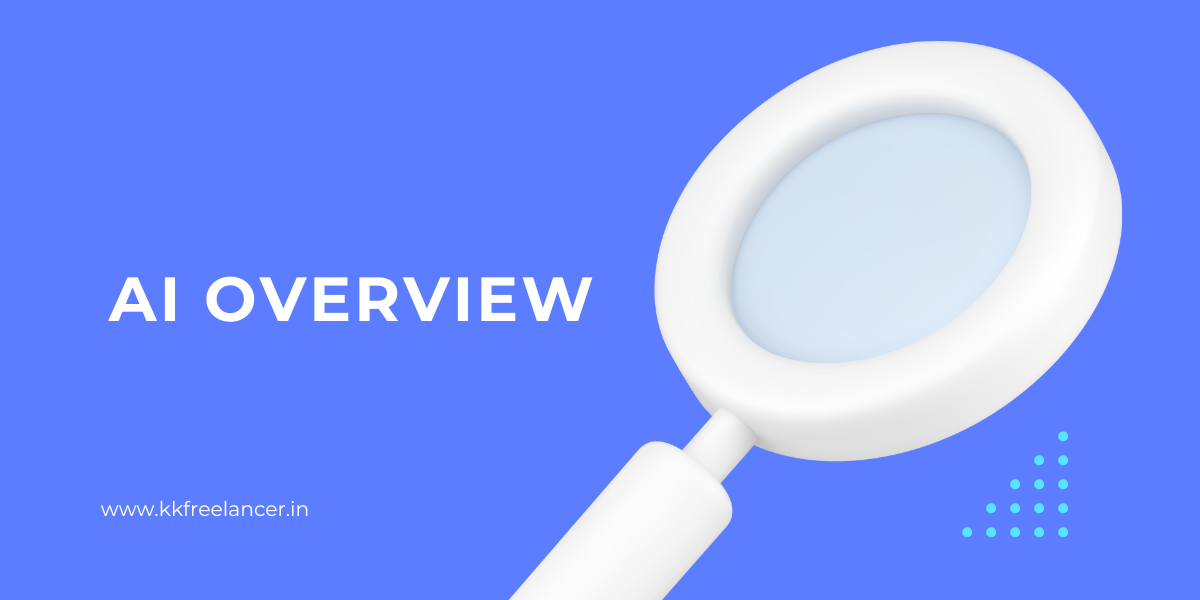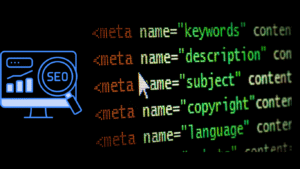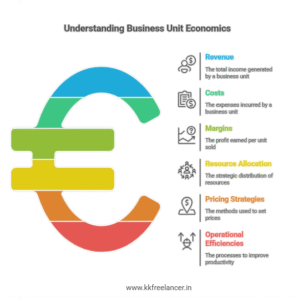In the world of SEO, artificial intelligence (AI) is no longer just a futuristic concept. It’s here, and it’s reshaping how websites rank on search engines like Google. If you’re a business owner, digital marketing professional, or SEO analyst, understanding how to rank in AI overview is essential. AI-driven search algorithms, such as Google AI, are transforming how search results are generated and evaluated.
Google AI Overview Search, for instance, has become one of the most crucial factors in determining SEO success. But how do you get your content to stand out in this AI-powered world? In this guide, we’ll explore exactly how you can optimize your website and content to rank higher in AI overview searches.
Whether you’re looking for how to rank in AI overview examples list or want an AI SEO checklist free, this guide will cover everything you need to know to boost your SEO strategy with AI.
Table of Contents
- What is Google AI Overview Search?
- How to Rank in AI Overview: Key Steps
- SEO for AI Search
- AI SEO Checklist Free: A Tool for Success
- Examples of AI Search Ranking Success
- How Google AI Affects Search Rankings
- Using SEO AI Agents to Boost Your Ranking
- The Future of SEO with AI
- Conclusion: Rank Smarter with AI
What is Google AI Overview Search?
Google AI Overview Search refers to how artificial intelligence is used to analyze and rank content across the web. It is a part of Google’s broader AI initiatives, including Google AI Search and other machine learning models, which help search engines understand the intent behind search queries and deliver more relevant, personalized results.
Unlike traditional SEO, where keyword density and backlinks are the primary ranking factors, AI-powered search algorithms now analyze content relevance, user experience, and other sophisticated factors. Google’s AI systems, like BERT and RankBrain, interpret the meaning behind the content and match it with the user’s search intent.
How Google AI Changes Search Ranking:
- Natural Language Processing (NLP): AI uses NLP to understand search queries more like humans, focusing on context rather than exact match keywords.
- Search Intent Matching: AI can predict what a user is truly looking for based on past behavior, location, and more.
- Semantic Search: AI focuses on the overall meaning of a search term, rather than just the keywords.
How to Rank in AI Overview: Key Steps
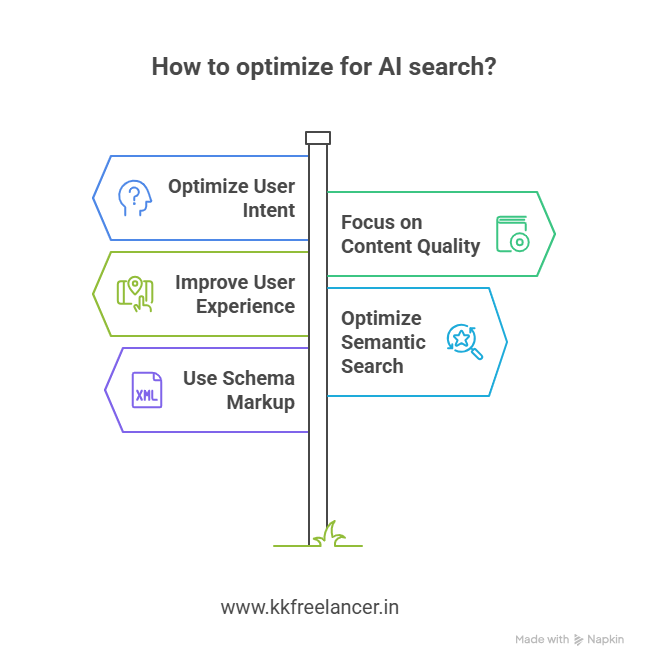
SEO for AI Search
To rank higher in AI-powered searches, you need to adapt your traditional SEO practices to AI-driven strategies. Here’s a step-by-step guide on how to do that:
- Optimize for User Intent: AI search algorithms focus on delivering content that matches user intent, not just keyword usage. Ensure your content answers the specific questions users have.
- Focus on Content Quality: AI places significant importance on high-quality content that provides value to users. Create content that is comprehensive, clear, and informative.
- Improve User Experience (UX): Google AI evaluates how users interact with your website. A fast, mobile-friendly site with easy navigation will rank higher.
- Optimize for Semantic Search: Integrate related terms and concepts into your content. Use synonyms and variations of your keywords to help AI understand the full context.
- Schema Markup: Use schema markup to help AI understand the structure of your content and improve your chances of appearing in rich snippets or knowledge panels.
AI SEO Checklist Free: A Tool for Success
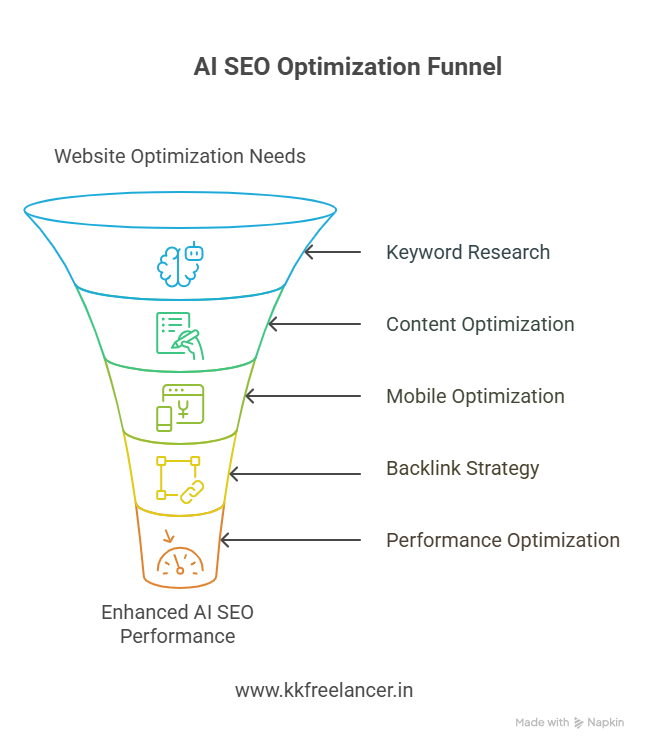
An AI SEO checklist free is an essential tool for anyone looking to optimize their website for AI-powered search engines. This checklist can help you ensure that you’re covering all the necessary steps, from technical SEO to content optimization. Here are the key areas to focus on:
- Keyword Research with AI Tools: Use AI-based tools like Ahrefs, MarketMuse, or Frase to find keywords and topics that your audience is searching for.
- Content Optimization for AI: Ensure your content is engaging, informative, and optimized for AI’s understanding of user intent.
- Mobile Optimization: With mobile-first indexing, your website must be responsive and optimized for mobile devices.
- Backlink Strategy: Build high-quality, relevant backlinks to improve your domain authority and rankings.
- Performance Optimization: Google AI evaluates website speed and technical performance. Ensure your site loads quickly on all devices.
Examples of AI Search Ranking Success
Some websites have successfully optimized their content for AI-powered search results by focusing on the right strategies:
- HubSpot: Known for its comprehensive, AI-optimized content strategy, HubSpot consistently ranks highly for marketing-related keywords.
- Moz: Moz’s use of AI tools for on-page SEO and content optimization has helped them maintain top rankings for SEO-related queries.
- Neil Patel: As an SEO expert, Neil Patel has utilized AI-powered tools to rank highly for keywords related to SEO strategies.
How Google AI Affects Search Rankings
AI’s impact on search rankings goes beyond keyword matching. Google AI understands the context of user queries, so ranking well requires more than just targeting keywords. Here are some key AI ranking factors:
- Content Relevance: Google AI evaluates how well your content aligns with the search intent. The more relevant your content is to the user’s query, the higher it ranks.
- Content Length: Google AI tends to favor long-form content that covers a topic in-depth. However, brevity with relevance still matters in some cases.
- User Engagement: Metrics like bounce rate, time spent on site, and click-through rate (CTR) can influence your ranking. AI analyzes these behaviors to determine the quality of your content.
Using SEO AI Agents to Boost Your Ranking
AI tools like SEO AI Agents are becoming increasingly popular for automating and optimizing SEO tasks. These agents analyze data, provide insights, and even generate content that is SEO-optimized for AI algorithms.
Some popular SEO AI Agents include:
- Surfer SEO: An AI-powered tool that helps optimize content and audit websites.
- Frase: Uses AI to analyze search results and generate optimized content for SEO.
- Clearscope: Focuses on content optimization with AI-driven keyword suggestions and content recommendations.
By leveraging AI agents, you can automate tedious SEO tasks, optimize content efficiently, and track your website’s performance more effectively.
5. The Future of SEO with AI
As AI continues to evolve, the future of SEO will likely involve even more personalized, intuitive search results. Voice search, natural language processing, and AI-driven tools are reshaping how content is discovered. Businesses will need to stay ahead by:
- Adapting to changing algorithms and learning how AI interprets user intent.
- Continuously optimizing content for voice and visual search.
- Using AI-powered tools to streamline SEO tasks and improve performance.
With AI’s increasing role in SEO, businesses must adopt AI-powered SEO strategies to remain competitive. connect best Ai SEO Expert in india
Conclusion: Rank Smarter with AI
Ranking in AI overview search results requires a shift in how we approach SEO. By optimizing content for user intent, improving technical performance, and utilizing AI-based tools, you can stay ahead of the competition in Google AI Search. An AI SEO checklist free can guide you through the necessary steps to ensure your content is optimized for AI algorithms.
Stay ahead of the curve by adopting AI-driven strategies for your SEO efforts. The future of SEO is here, and by embracing it, you can improve your website’s visibility, drive more traffic, and ultimately boost your business’s success.
FAQS :
Ranking content in the context of AI refers to the process of optimizing your content for search engines using AI-driven techniques, ensuring it appears at the top of search engine results pages (SERPs). This can be achieved through the combination of traditional SEO best practices and modern AI tools that analyze and optimize content for relevance and user intent.
Here’s a structured approach to ranking your content in an AI overview:
In AI, ranking refers to the process of ordering items (such as content, search results, or recommendations) based on relevance and quality according to the AI model or algorithm. Ranking models are used across various domains, such as search engines, recommendation systems, and even in AI-driven tools like chatbots and virtual assistants.
Tracking AI overview refers to the process of monitoring the performance, impact, and engagement of AI-driven initiatives or AI-powered content in digital platforms. This involves analyzing how well AI models or content related to AI rank, perform, or drive business outcomes.


